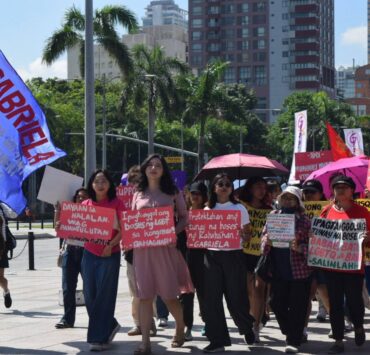SC nullifies Mindoro mining moratorium

The Supreme Court has nullified the 25-year moratorium on large-scale mining imposed by the provincial government of Occidental Mindoro and one of its municipalities, Abra de Ilog, in 2009.
The high court found the ban to be in violation of Republic Act No. (RA) 7942, or the Philippine Mining Act of 1995, as it upheld the legal challenge raised by a company that had plans to mine four towns on Mindoro Island for gold and silver.
In a 31-page decision written by Senior Associate Justice Marvic Leonen, the high court en banc ruled that the province exceeded its powers and authority when it completely banned all large-scale exploration and mining operations within its jurisdiction.
The Supreme Court’s decision on G.R. No. 248932, promulgated on Jan. 14 and made public on Wednesday, affirmed the decision of the regional trial court (RTC) of Mamburao, Occidental Mindoro, invalidating the moratorium order.
“The exploration, development and utilization of mineral resources necessarily affects the environment. However, with regard to addressing environmental concerns relevant to mining activities, the local government unit’s (LGU) exercise of its powers under the Local Government Code must be consistent with the provisions of RA 7942, a later legislative enactment specially regulating mining,” the high court pointed out. (See related story in Business, Page B2.)
‘Unreasonable’
The ruling resolved a case filed in 2014 at the Mindoro RTC by Agusan Petroleum and Mineral Corp., which argued that the mining ban was “unreasonable, oppressive and discriminatory.”
The company, owned by San Miguel Corp. president Ramon S. Ang, said the moratorium affected its rights under a 2008 agreement with the government that gave it exclusive authority to explore, mine, use, and market minerals from some 46,050 hectares of land located in Baco, San Teodoro and Puerto Galera in Oriental Mindoro, and in Mamburao and Abra de Ilog in Occidental Mindoro.
Agusan was hoping to tap a potentially rich gold and silver reserve on the mining property, according to the Mines and Geoscience Bureau.
The RTC issued a decision in 2018 declaring as unconstitutional the questioned moratorium, prompting the Occidental Mindoro province to elevate the case to the high tribunal.
The Mindoro Occidental provincial government contended that while the state owns all natural resources, it also has the constitutional duty to protect and advance the right of the people to a balanced and healthful ecology.
It asserted that RA 7942 recognizes certain areas closed to mining activities such as “areas expressly prohibited by law,” and that term “law” included ordinances passed by LGUs.
It also argued that the enactment of these local measures was a valid exercise of police power.
Limited authority
In denying the LGU’s petition, the Supreme Court found the ordinances and resolutions “too broad” and exceeding the scope of the LGUs’ powers under RA 7160 or the Local Government Code of 1991, and contravene Article XII, Section 2 of the Constitution on the State’s ownership and control over natural resources, and relevant provisions of RA 7942.
While LGUs enjoy local autonomy under the constitution, the high court said, this is “limited and confined within the extent allowed by the national government.”
“Local governments are not sovereign within the State and remain under the president’s supervision,” it added.
The court further ruled that under RA 7942 and its 2010 Revised Implementing Rules, as well as RA 7160, an LGU has no authority to ban all large-scale mining activities within its jurisdiction but must attend to each application separately, in view of the required prior informed consent.
“[The LGU] may or may not give its approval to the application based on its evaluation of the project’s social acceptability and impact on environment, livelihood, and land rights of its constituents. Consequently, within this sphere of authority, [the LGU] may prohibit a specific mining project to be conducted within its territorial jurisdiction,” the Supreme Court said, noting that the law already provides stringent measures to safeguard the environment.
It added that LGUs cannot disregard RA 7942 and completely ban altogether all large-scale mining activities, pointing out that “what the national legislature expressly allows, the local government units may not disallow by ordinance or resolution.”
In her concurring opinion, Associate Justice Amy Lazaro-Javier said the province can still serve the best interests of its people by properly reviewing and approving Agusan Petroleum’s mining application.
Precedent-setting
An environmental group on Thursday criticized the decision, saying it “tramples on the right of local governments and communities to defend their environment and welfare.”
“[T]he Supreme Court has effectively stripped communities and local governments of their power to protect their lands, watersheds and livelihoods from the well-documented destruction caused by extractive industries,” the Kalikasan People’s Network for the Environment said.
Kalikasan also described the ruling as “a dangerous and precedent-setting move that exposes the profound flaws” of RA 7942.
In Mindoro, local leaders called on residents and officials to be proactive and establish their own rules to limit mining activities in view of the high court ruling.
Occidental Mindoro Gov. Eduardo Gadiano, in an interview on Thursday, acknowledged the high court ruling but said “the people can still do something, if they don’t like a project, by putting pressure” on local officials.
Gadiano said the “challenge is on the companies to socially prepare the people, prove that there is sustainable mining, and comply with the several requirements.”
“The [SC] is entrusting LGUs with the responsibility to address and thoroughly review each application within their jurisdiction. We need to be prepared for this,” said Sablayan municipal administrator Norman Novio. “This poses a significant challenge to newly elected officials in provinces and towns where there are pending mining applications.” —WITH REPORTS FROM GILLIAN VILLANUEVA AND MADONNA T. VIROLA

















